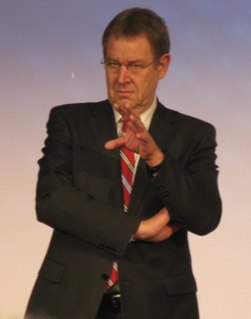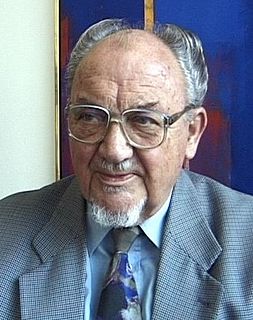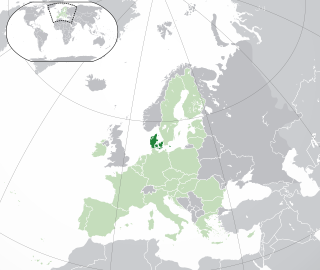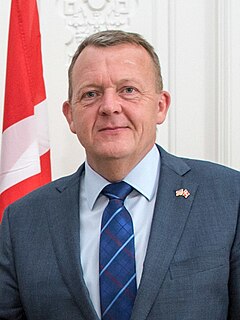
General elections were held in Denmark on 21 September 1994. The coalition of the Social Democratic Party, the Danish Social Liberal Party and the Centre Democrats led by Poul Nyrup Rasmussen remained in power despite the Christian People's Party, which had been part of the government, failing to cross the 2% threshold and losing all four seats. Voter turnout was 84.3% in Denmark proper, 62.3% in the Faroe Islands and 56.7% in Greenland.

General elections were held in Denmark on 12 December 1990. Although the election resulted in a strong gain for the Social Democratic Party, Poul Schlüter's coalition government was able to continue despite the Danish Social Liberal Party leaving. Schlüter's coalition consisted of the Conservative People's Party and Venstre. Voter turnout was 82.8% in Denmark proper, 54.4% in the Faroe Islands and 50.8% in Greenland.

General elections were held in Denmark on 8 September 1987. Although the Social Democratic Party remained the largest in the Folketing with 54 of the 179 seats, the Conservative People's Party-led coalition government was able to continue. Voter turnout was 86.7% in Denmark proper, 68.9% in the Faroe Islands and 44.9% in Greenland.

A referendum on the treaty establishing a Constitution for Europe was held in Spain on 20 February 2005. The consultative referendum on ratification of the proposed Constitution of the European Union was approved by 81.8% of voters, although turnout was just 41.8%, the lowest since the end of the Franco era.

General elections were held in Denmark on 10 January 1984, after the opposition voted against the government's state budget bill. Although the Social Democratic Party remained the largest in the Folketing with 56 of the 179 seats, the Conservative People's Party achieved its best-ever result, gaining 16 seats. The coalition partners Venstre and the Christian People's Party also increased their representation, although the fourth government party, the Centre Democrats, lost seven of their 15 seats. Overall the coalition won three more seats, and Poul Schlüter continued as Prime Minister.

General elections were held in Denmark on 21 September 1971 and in the Faroe Islands on 5 October. The Social Democratic Party remained the largest in the Folketing, with 70 of the 179 seats. Voter turnout was 87.2% in Denmark proper, 56.8% in the Faroe Islands and 52.1% in Greenland.

Folketing elections were held in Denmark on 3 April 1939, except in the Faroe Islands where they were held on 19 April. They followed a dissolution of both chambers in order to call a referendum on changing the constitution. The referendum was held on 23 May but failed due to a low voter turnout. The result of the elections was a victory for the Social Democratic Party, which won 64 of the 149 seats. Voter turnout was 79.2% in Denmark proper and 47.8% in the Faroes.

Folketing elections were held in Denmark on 23 March 1943 alongside Landsting elections, except in the Faroe Islands where they were held on 3 May. They were the first elections during the German occupation, and although many people feared how the Germans might react to the election, the event took place peacefully. The voter turnout was at 89.5%, the highest of any Danish parliamentary election, and became a demonstration against the occupation. The Social Democratic Party remained the largest in the Folketing, with 66 of the 149 seats. After the elections, leading German newspapers expressed disappointment and indignation with the lack of political evolution among the Danish voters.

General elections were held in Belgium on 4 June 1950. The result was a victory for the Christian Social Party, which won 108 of the 212 seats in the Chamber of Representatives and 54 of the 106 seats in the Senate. Voter turnout was 92.6%. This election was the last one in Belgian history were a single party achieved an absolute majority. Elections for the nine provincial councils were also held.

A referendum on the Maastricht Treaty was held in France on 20 September 1992. It was approved by only 51% of the voters. The result of the referendum, known as the "petit oui", along with the Danish "No" vote are considered to be signals of the end of the "permissive consensus" on European integration which had existed in most of continental Europe until then. From this point forward issues relating to European integration were subject to much greater scrutiny across much of Europe, and overt euroscepticism gained prominence. Only France, Ireland and Denmark held referendums on Maastricht ratification.

A referendum on the enlargement of the EC was held in France on 23 April 1972. Voters were asked whether they approved of Denmark, Ireland, Norway and the United Kingdom joining the EC.. The proposals were approved by 68.3% of voters, with a turnout of 60.2%.

A referendum on joining the Eurozone was held in Denmark on 28 September 2000. It was rejected by 53.2% of voters with a turnout of 87.6%.

A referendum on the Amsterdam Treaty was held in Denmark on 28 May 1998. It was approved by 55.1% of voters with a turnout of 76.2%. The treaty subsequently came into effect on 1 May 1999.

A second referendum on the Maastricht Treaty was held in Denmark on 18 May 1993. After rejecting the treaty in a referendum the previous year, this time it was approved by 56.7% of voters with an 86.5% turnout.
A referendum on lowering the voting age from 20 to 18 was held in Denmark on 19 September 1978. It was held after the Danish government lowering the age of majority from 20 to 18 in 1976. The change was approved by 53.8% of voters with a turnout of 63.2%. The electoral age had previously been lowered from 21 to 20 in a 1971 referendum, after a 1969 referendum had rejected lowering the electoral age to 18.
A referendum on land laws was held in Denmark on 25 June 1963. The four land laws, which had already been passed by the Danish parliament, were rejected by voters. It was the first, and so far only, time in Danish history that a law passed by parliament had been sent to a public referendum by a minority in parliament.

A referendum on the Act of Union was held in Iceland on 19 October 1918. Voters were asked whether they approved of the Act, which would lead to Iceland becoming a separate kingdom under the Danish Crown, making the country a sovereign state in a personal union with Denmark. It was approved by 92.6% of voters.

A double referendum was held in Italy on 11 June 1978. Voters were asked whether they approved of the repealing of laws on political party financing and public order. Both proposals were rejected.

A referendum on creating administrative regions was held in Portugal on 8 November 1998. Two proposals were put to voters, the first on implementing the regions, and the second specifically asking whether voters approved of the new region for their area. The proposals were rejected by wide margins by voters.

Denmark in the European Union refers to the historical and current issues of Denmark's membership in the European Union. Denmark has a permanent representation to the European Union led by ambassador Jeppe Tranholm-Mikkelsen, in Brussels. The current Foreign Minister and Minister for European Affairs is Anders Samuelsen.




















